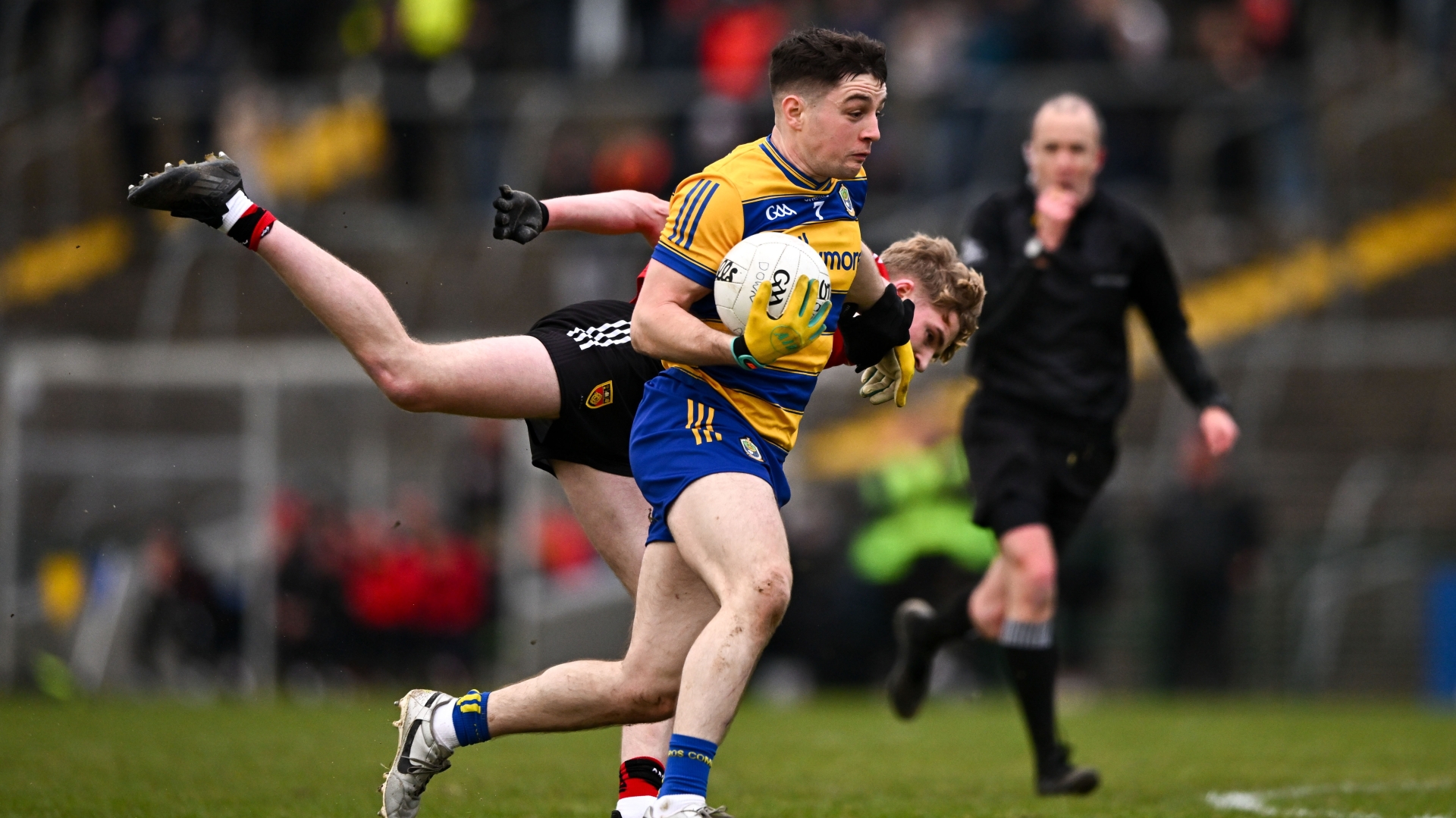'Solo and Go' Frees
A player who is fouled has the option to continue play by taking a ‘solo and go’ rather than pausing for a free. This option does not have to be taken by the fouled player. For instance, if the fouled player is grounded, they can hand the ball to the nearest teammate, who may then take the ‘solo and go.’ If the fouled player takes the ‘solo and go’ themselves, they are allowed an advantage of four metres (either forward or sideways) during which they cannot be tackled
Tyrone v Derry: Not as noticeable as at the inter-provincials, although this is arguably the most popular of all changes - although early days it is. Although the pace of the contest wasn’t as fast as some might have thought it would, there is certainly much more time with the ball in play.
Roscommon v Down: One of the most noticeable aspects of this game. It seemed that both teams wanted to utilise this new rule at every opportunity and to good effect.
Dublin v Mayo: In total, this was used on three occasions in Croke Park, two of which were defenders trying to march out of their own defence with the ball but were fouled. At one stage Dublin was penalised for overcarrying, resulting in Mayo using the ‘tap and go’ option inside the ‘D’, but their resulting effort fell wide. This could be contentious in future regarding stoppages from referees trying to book players.
Subscribe or register today to discover more from DonegalLive.ie
Buy the e-paper of the Donegal Democrat, Donegal People's Press, Donegal Post and Inish Times here for instant access to Donegal's premier news titles.
Keep up with the latest news from Donegal with our daily newsletter featuring the most important stories of the day delivered to your inbox every evening at 5pm.